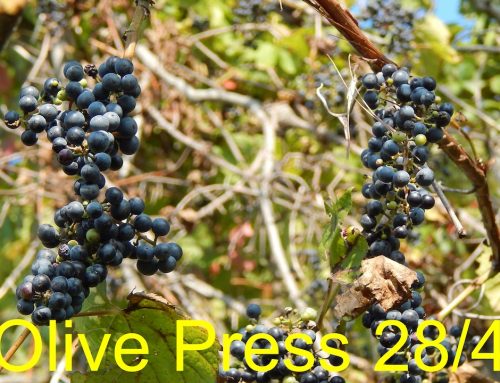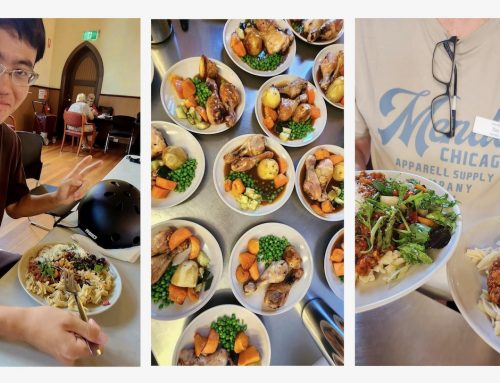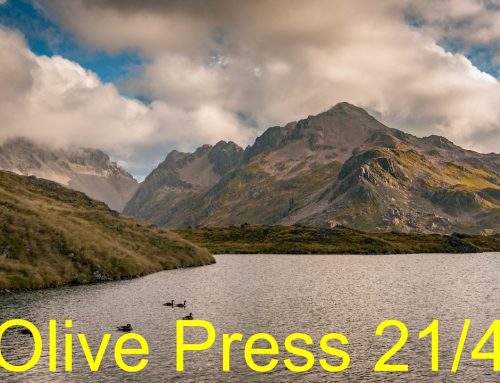Daniel Broadstock
The past few months have been transformative for all of us, but particularly for Dan, who returned from London when the pandemic struck.
So what happened?
Oh boy! Well I taught secondary school in London months before COVID-19 hit. Teaching there was really quite stressful and so different to anything that I had experienced previously. A lot of students came from a background of poverty and family instability – there was a lot of hostility and anger and disinterest. I ended up finishing there at the end of that term and started doing classroom aide work with much smaller children before COVID swept over Europe like storm a month later and they closed the schools.
How did you feel about leaving London prematurely?
Quite disappointed – it had been something I had been looking forward to doing for a long time. I was just so happy and excited to walk out of my front door, jump on a train and be in the centre of one of the greatest cities in the world. I had plans to travel all over Europe when summer came, but with lockdown coming, I was facing the prospect of being stranded in London with no income, so decided that I had to come home. But then all the global airlines started collapsing and there was quite a frightening week when it looked like I mightn’t get out at all. Fortunately, Qatar was the one airline that continued to fly and I got home with them. I think in the west we’re just not used to ‘out of control’ disasters. We live in such wealthy countries we’re used to being shielded from disaster and it felt like I was pretty helpless in the face of global forces.
And when you came back?
I spent 14 days in quarantine in the Crown Hotel in Melbourne, which was another very bizarre experience, a bit of a mental test. Your brain just goes into a kind of ‘moosh’ because of the absence of different stimuli, no fresh air, basically the same food every day and only being able to move in a very confined space. I lost track of time very quickly – it felt like one endless day.
I’m now living with my parents in Melton.
What have you been up to since you came back?
In some ways, the past six months have been some of the most fulfilling of my life because it’s given me time and freedom to write, which I’ve wanted to pursue for quite a long time. I’ve approached writing as if it were my job and that’s been very fruitful and hugely beneficial to me: a way to occupy me and structure to my days, spiritually and imaginatively. It’s an opportunity I wouldn’t otherwise have had and it’s borne fruit.
I’ve been writing a novel inspired by the Pied Piper of Hamelin fairy story and the historic reality behind the tale. It seems there was some true event in the town of Hamelin in which a percentage of the town’s children were lost. The novel tells the story of the events that lead up to Hamelin losing its children, from the perspective of a young woman who loses her own child. It also has autobiographical and theological elements to it. There’s a real thrill of discovery as a writer, even though it’s something you’re inventing.
What have been some of the impacts of lockdown on you or your family?
The fact that I live with my parents and I have a good group of friends that I can communicate with has meant that lockdown has been a very light burden for me. But my sister had a baby just about the time I got back from London, her first child, and isolation has put burdens on her.
What has got you through?
Great support from my parents and friends. I’ve also tried to focus on things that give me pleasure: writing, reading good books from authors like Kazuo Ishiguro (‘The Buried Giant’), Frederick Buechner and Marilyn Robinson, authors who make you think about living and grappling with issues of today.
What have you learned?
Over this period I’ve learned that I’m capable. I sometimes worried that writing a novel would be something that was beyond me, but I’ve learned that it’s something that I’m capable of.
I’ve had to work at maintaining my spiritual life in a way that I didn’t when we were a community and we were having church together. Faith and the church are communal things by nature and intention. I think our faith is stronger when we’re faithful together. In solitude, you’re not challenged by anything, but when we’re in a community we have to talk and listen to each other and be exposed to things that might not necessarily occur to us on our own; find inspiration and discomfort from the differences in people around me.
What are you looking forward to most on the ‘other side’?
Being able to go freely outside beyond my home environment, seeing my friends again and niece.
Relationships are difficult to function digitally because it’s difficult to ‘read’ each other and discern how the other person is feeling or what they need. I think there’s going to have to be some sort of collective reorientation. It’s going to take us all a bit of time to learn to be close to each other again in healthy ways.
Peter McKinnon, 22/09/2020
Visit the Riding the Waves page for all the stories.






Leave A Comment